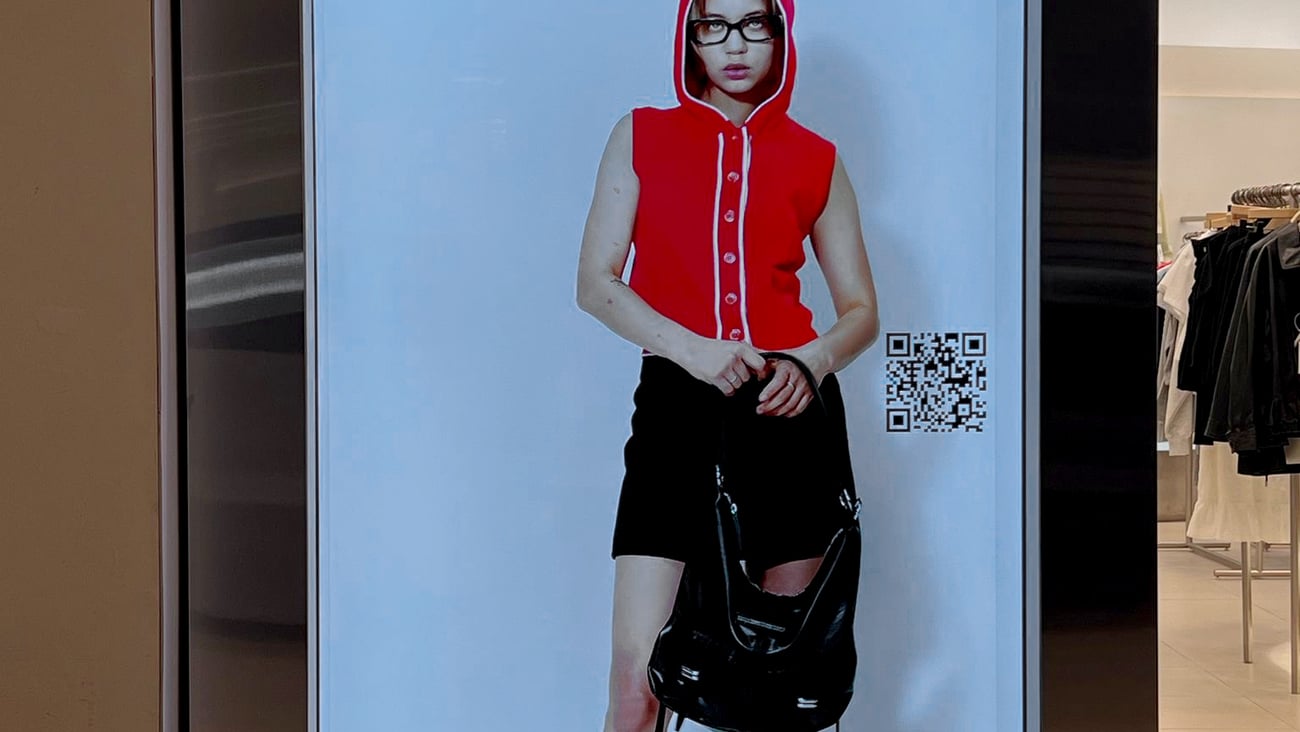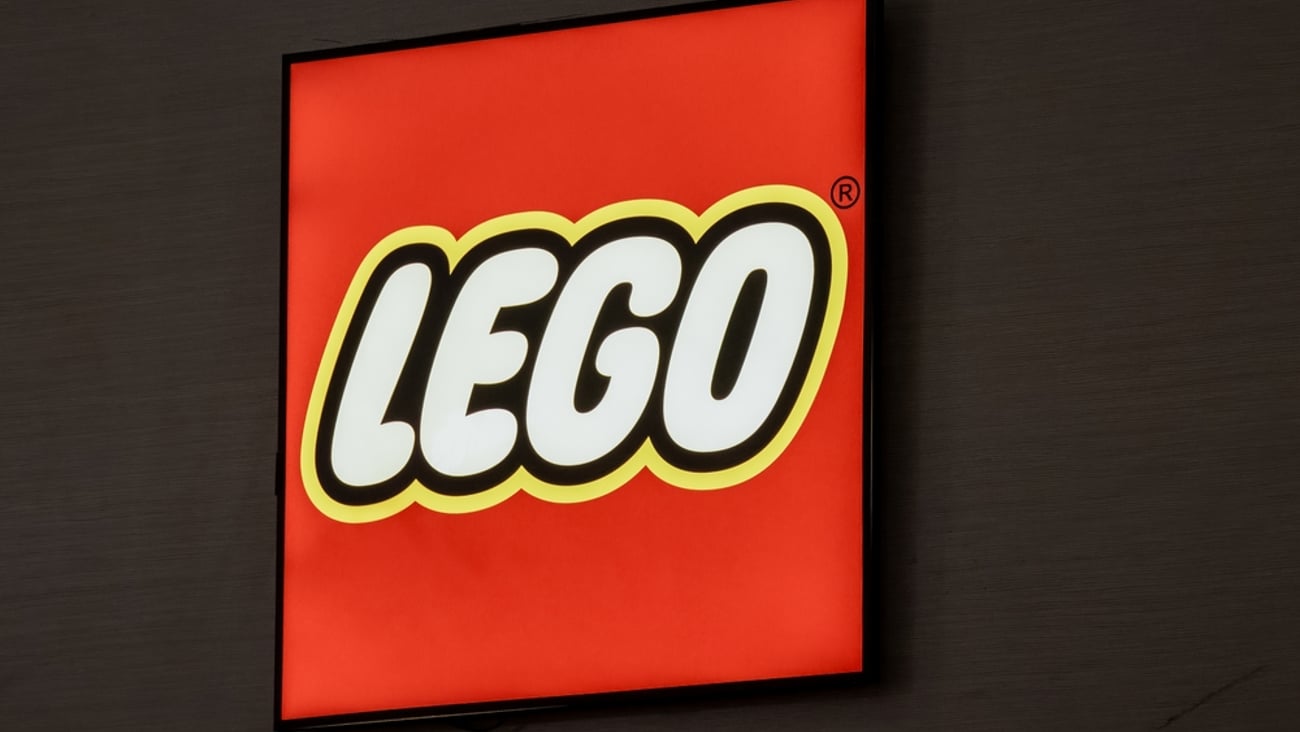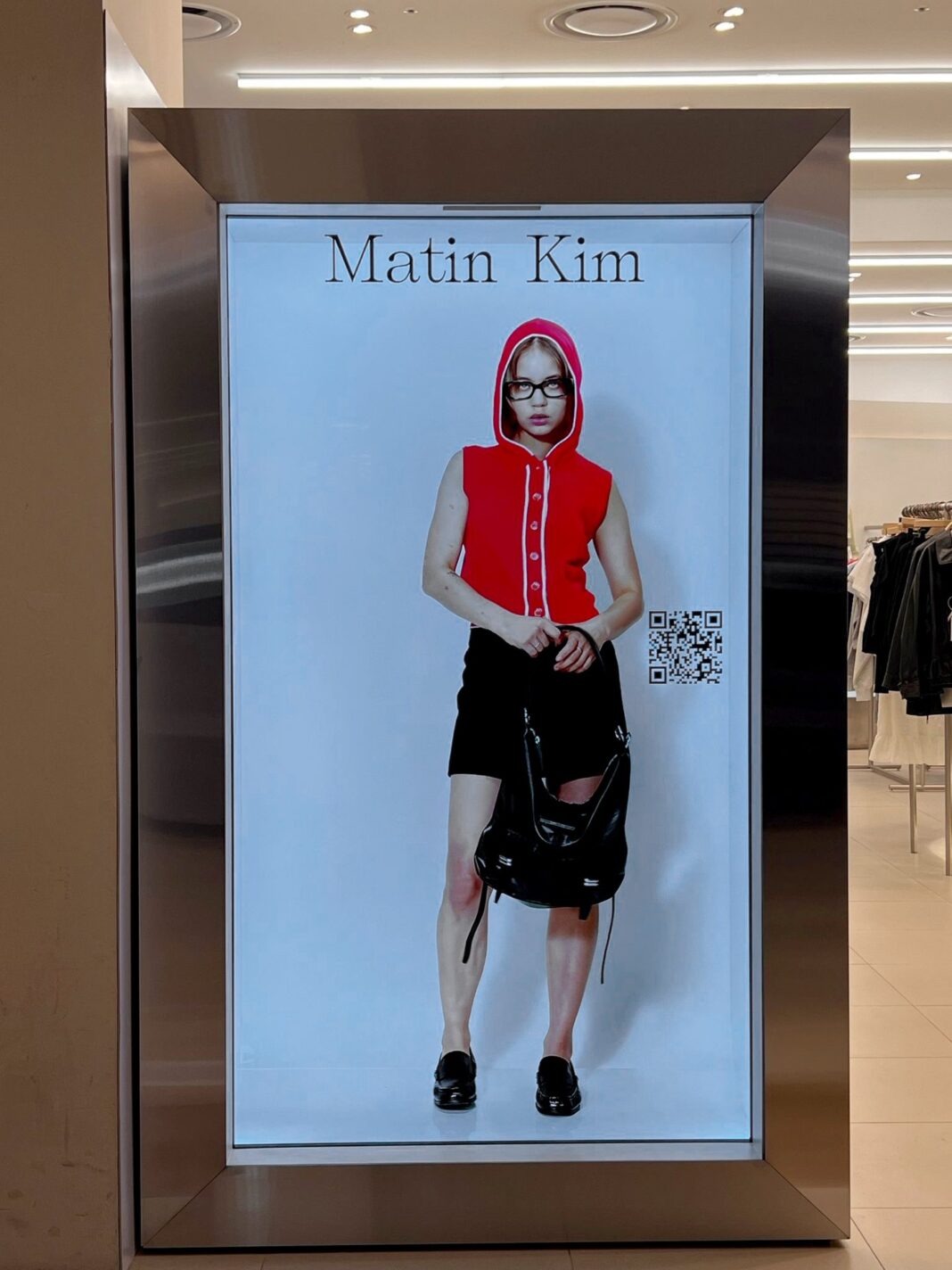## Forget Mannequins, Step Into Your Dream Shopping Spree: How Immersive Tech is Personalizing Retail
Remember that frustrating feeling of wandering a crowded store, searching for a specific item or inspiration? Imagine a future where aisles fade away and you’re whisked into a personalized shopping experience, tailored to your unique tastes and needs. That future is closer than you think.

The North Face: Embracing Adventure Through Technology

Outdoor apparel and gear retailer The North Face has a flagship store in London designed to function like a real base camp. For the hub of the store, North Face has recreated a campfire setting with base camp duffel bag seating as a community area, under an immersive 3D experience tent where projections of mountain summits change between night and day featuring different weather conditions, as life is outdoors. To help consumer navigation, North Face has split the consumer journey, zoning areas with wide lightboxes from its athletes’ expeditions and featuring active 3D-printed mannequins which are 100% recycled and recyclable, created to inspire adventure. The space is highly phygital with wide screens at the entrance for brand and product storytelling to help customers understand product benefits and compare products. All details connect with mountains and outdoors, mimicked in the footwear wall and the welcoming wall built with aluminum grid and rocks. A space is also dedicated to sustainability, offering a range of services to extend the life of products from customization, to repair, to returns.
Matin Kim: Elevating Fashion with Holographic Avatars
Korean fashion retailer Matin Kim has installed highly realistic virtual reality hologram technology at five of its Matin Kim and Hago Haus stores. The hologram models from Los Angeles-based Proto Hologram can move and turn 360 degrees to show outfits to shoppers and have built-in cameras, microphones, speakers and touchscreens, as well as AI capabilities. The hologram avatars can also be activated to answer questions for shoppers about products, in any language, using Proto AI tools. In the future, Matin Kim intends to be able to beam hologram versions of live special guests into its stores with the ability to see, hear and interact with shoppers in real time.
Scheels: Digital Transformation in a World of Play
Employee-owned sporting goods retailer Scheels has created immersive in-store digital environments with LED display walls. Known for its mega-sized stores filled with all sorts of fun attractions, Scheels has completed an $11 million digital signage initiative with experiential media company Mood Media. The digital signage project, which began in October 2023, involved the installation of approximately 460 LED screens throughout five strategic zones in each store, including men’s and women’s shoe sections, store corners, structural columns and above the grand staircases. Scheels can synchronize the display network for store-wide takeover campaigns by brand partners such as Nike, Adidas and Lego; or segment promotional content for localized zone delivery. The initiative consolidates 32 individual store systems into a single unified application through Mood Media’s Harmony platform, which provides centralized management of audio and visual experiences.
Virtual Try-Ons and Augmented Reality: Revolutionizing Product Discovery
Immersive technologies are transforming the way shoppers interact with products, offering a level of personalization and engagement previously unattainable in physical stores. Virtual try-on experiences, powered by augmented reality (AR), allow customers to visualize how clothing, accessories, or even furniture would look in their own space. This feature eliminates the guesswork associated with online purchases and provides a more interactive and satisfying shopping experience. For example, Sephora’s Virtual Artist app allows users to try on different makeup shades and looks using their smartphone cameras, while IKEA’s Place app lets customers virtually place furniture in their homes to assess size and style.
AR technology also extends beyond virtual try-ons, offering retailers new ways to showcase product features and benefits. By overlaying digital information onto the physical world, AR can provide customers with detailed product descriptions, reviews, and even interactive demonstrations. For instance, a car dealership might use AR to allow customers to explore the interior and exterior of a vehicle, highlighting specific features and specifications.
The Impact on Retail
The widespread adoption of virtual try-ons and AR is expected to significantly impact the retail landscape. By providing a more personalized and engaging shopping experience, these technologies have the potential to increase customer satisfaction, drive sales, and reduce returns.
AI-Powered Shopping Assistants: Personalized Guidance at Your Fingertips
Artificial intelligence (AI) is playing an increasingly important role in shaping the future of retail, empowering shopping assistants and creating more personalized experiences. AI-powered chatbots and virtual assistants can provide customers with instant answers to questions, offer product recommendations based on their preferences, and even guide them through the checkout process. These intelligent assistants are available 24/7, providing personalized support whenever customers need it.
Benefits of AI Shopping Assistants
- Personalized Recommendations: AI algorithms can analyze customer data, browsing history, and purchase patterns to provide tailored product suggestions.
- 24/7 Availability: AI assistants are always on hand to answer questions and offer assistance, regardless of store hours.
- Improved Customer Service: AI-powered chatbots can handle a high volume of inquiries, freeing up human employees to focus on more complex issues.
- Enhanced Efficiency: AI can automate tasks such as order processing and inventory management, improving overall store efficiency.
The Ethical Considerations: Balancing Personalization with Privacy
While immersive technologies offer exciting opportunities for retailers, it’s crucial to address the ethical considerations surrounding data privacy and personalization. As retailers collect more data about customer preferences and behaviors, it’s essential to ensure that this information is used responsibly and ethically.
Key Ethical Considerations
- Data Security: Retailers must implement robust security measures to protect customer data from unauthorized access and breaches.
- Transparency and Consent: Customers should be informed about how their data is being collected, used, and shared. Retailers should obtain explicit consent before collecting or using sensitive personal information.
- Data Minimization: Retailers should only collect the data that is absolutely necessary for providing personalized services.
- Fairness and Non-Discrimination: AI algorithms should be designed and trained to avoid biases that could result in discriminatory outcomes.
Conclusion
The future of retail is undeniably intertwined with immersive technology. As we’ve explored in this article, tools like augmented reality, virtual reality, and 3D visualization are poised to revolutionize the in-store experience. By offering personalized product demonstrations, interactive displays, and customized recommendations, these technologies empower shoppers to engage with brands on a deeper level, fostering stronger connections and driving customer loyalty.
The implications of this shift are far-reaching. Brick-and-mortar stores will need to evolve beyond static displays and transactional exchanges, transforming into dynamic, experiential spaces. Retailers who embrace these technologies will gain a competitive edge, attracting tech-savvy consumers and differentiating themselves in a crowded marketplace. However, this transformation also presents challenges. Ensuring accessibility for all consumers, navigating data privacy concerns, and developing engaging and user-friendly experiences will be crucial for success. Ultimately, the retailers who can seamlessly blend the physical and digital worlds will be the ones who thrive in the immersive retail landscape of tomorrow.
This isn’t simply about upgrading technology; it’s about reimagining the very essence of the shopping experience. It’s about creating spaces where technology empowers human connection, where brands tell stories that resonate, and where every customer feels seen, heard, and valued. The future of retail is immersive, and the journey has just begun.
